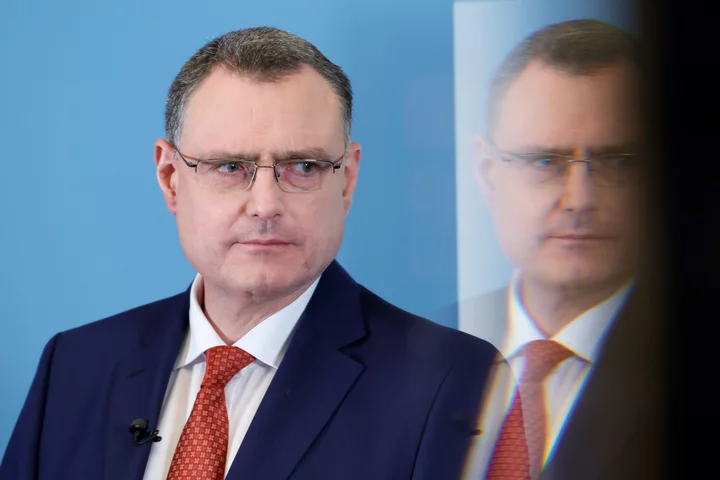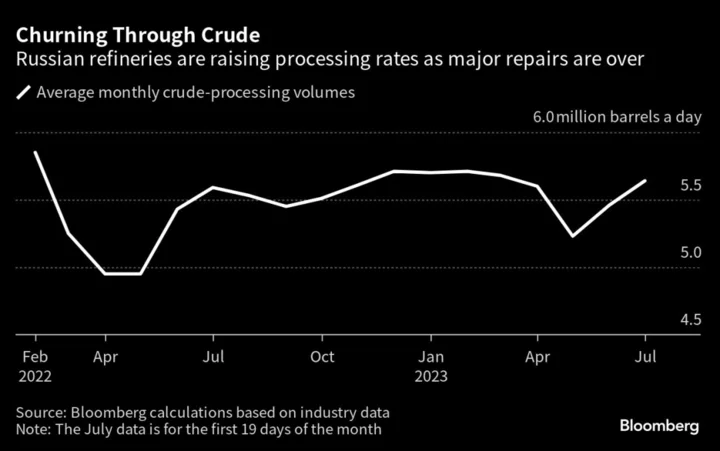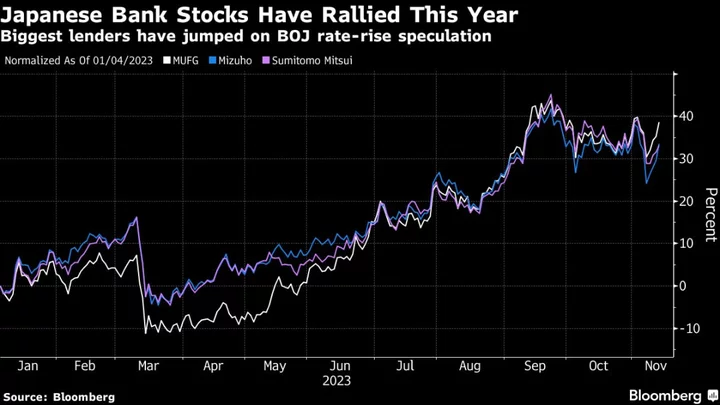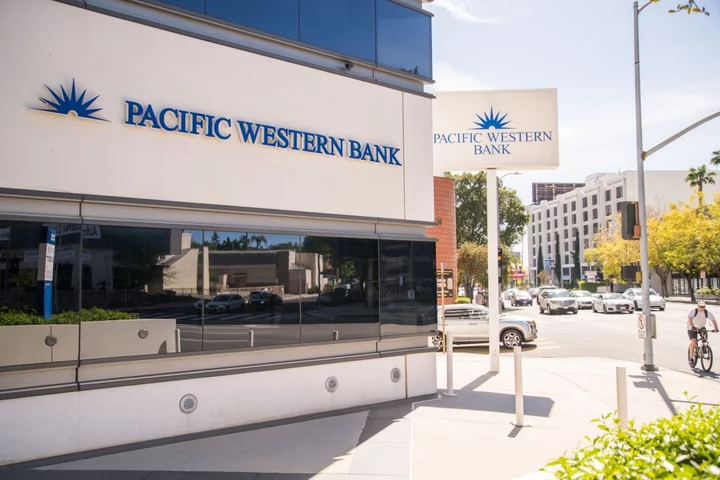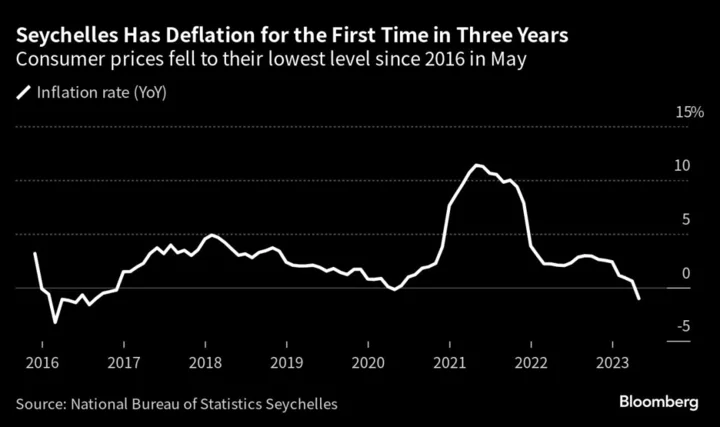The head of one of Hungary’s biggest manufacturers called for euro adoption after policies under Prime Minister Viktor Orban produced one of the worst economic crises in the European Union in the past year.
After a year-long recession, a brush with a currency crisis, the bloc’s fastest inflation and the suspension of crucial EU funding over democratic concerns, Hungary should waste no time committing to joining the euro and embracing the EU’s values, according to Otto Sinko, the co-chief executive officer of contract manufacturer Videoton Zrt.
“A timetable for euro adoption would by itself have a stabilizing factor, especially if it’s coupled with political steps that would make peace with the EU,” Sinko said in a written response to Bloomberg questions.
Brussels and Budapest have been in a standoff over democratic values after more than a decade of power consolidation by Orban, with graft and rule-of-law concerns paving the way for a halt in more than $30 billion in EU financing.
At the same time, Orban’s government has grown closer to Russia and China even as much of the rest of the EU takes measures to curb their influence.
“I don’t approve of the maverick, eastern-oriented steps,” Sinko said. “Hungary’s path is toward the West, not the East.”
While Sinko said his call for the euro was his personal opinion rather than the position of Videoton, which he co-owns, the comments are notable coming from the head of a company that’s one of Hungary’s biggest employers and one that may benefit from a weaker forint.
The forint has dropped more than 30% against the euro since Orban returned to power in 2010. Its weakening accelerated last year as record pre-election spending turbo-charged an EU-wide surge in prices while emergency monetary policy moves undermined investor confidence. The forint fell near a six-month low last week.
“It’s not true that a weak forint is the sole focus for exporters,” said Sinko, whose company’s 9,200 workers assemble everything from car parts to household appliances for export to EU markets. “That only makes sense if there’s economic stability.”
Central bankers were forced to hike interest rates to 18% last October to stabilize local assets in an emergency that took until last week to unwind. The move halted a “creeping euroization” that saw almost half of new savings made in euros rather than forint at one point, Deputy Governor Barnabas Virag said in April.
While inflation is expected to slow to single-digit territory before year-end and the government sees the economy growing from the third quarter, the question of how to cement those gains while shoring up the budget has revealed fault lines among top policymakers.
Last month, key Orban ministers clashed with the central bank over monetary policy and inflation, while divisions emerged inside the cabinet over ways to rein in the record budget shortfall and whether the euro could help.
Finance Minister Mihaly Varga even raised the possibility of pegging the forint to the euro under a mechanism that precedes the currency switch. Orban’s cabinet minister, Gergely Gulyas, said Thursday that it’s too early to talk about euro adoption.
Sinko said the seven eastern European nations that adopted the euro since they joined the EU were better off during times of economic turbulence, as they didn’t suffer steep currency depreciations or need to maintain high foreign-currency reserves. They also reduced the chance for “monetary-policy errors,” he said.
“When we talk about euro adoption many only talk about the the disadvantages, such as losing monetary-policy independence,” Sinko said. “But why don’t we list its advantages?”



